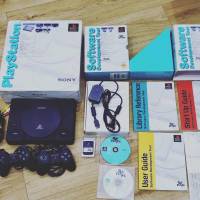Copy Link
Add to Bookmark
Report
COM NET NEWS Vol. 1 No. 6

[Both sections of this issue have been concatenated into one file for this
archive.]
Date: Mon, 19 Sep 1994 11:27:04 -0600 (MDT)
From: richard bryant <rbryant@unm.edu>
Subject: COM NET NEWS V1.6 Part 1 September 1994
COM NET NEWS
Vol. 1 No. 6 September
Part 1--Original and Other News
>From the Editor
As indicated in the last issue of COM NET NEWS, I am requesting donations
from readers to help defer the costs of production of this newsletter. I am
requesting a donation of $35 per year for individuals and $75 per year for
companies and organizations. Non-U.S. subscribers, please send
donation in U.S. currency. But, please note that this is a request--you will not
be dropped from the subscription list if you don't contribute. A number of
readers requested to unsubscribe because of the donation. Please don't feel
that you have to pay. If you can't afford it or have too many other paid
subscriptions, or whatever, don't worry, you will still receive COM NET NEWS.
Also, I will continue to post COM NET NEWS on various listservs and the it
may be freely distributed among groups for noncommercial purposes.
The request for donations is due to the time and other costs incurred in
putting together COM NET NEWS. It is hoped that you feel that it is of value
to you, and you can be assured that I will continue to better COM NET NEWS.
Back issues of COM NET NEWS are archived in the Well gopher
(gopher.well.sf.ca.us) under "Community/"
As a reminder, this issue of COM NET NEWS reflects the suggestions of
several subscribers. COM NET NEWS now contains a Table of Contents,
and, the newsletter is broken down into two parts--Part 1--Original and Other
News; and Part 2--News from Other Newsletter Sources, e.g., Edupage. The
two parts will be emailed to you as separate messages.
Richard W. Bryant, Editor
RW Bryant Associates
Advanced Technology Market Research & Com Net Consultants
P.O. Box 1828
El Prado, NM 87529
Tel/fax: 505-758-1919
rbryant@hydra.unm.edu
******************************************************************
******************************************************************
ORIGINAL AND OTHER NEWS
------------------------------------------------------------------------
La Plaza/Fielding Institute Rountable, Taos, NM
URISA '94 Annual Conference & Exposition in Milwaukee, WI
PAVNET Gopher Server
OTANEWS Listserv Now Available
Selected OTA publications Available Via FTP
Politicians Have It Wrong: Universal Service for the Infobahn Isn't a
Reform, It's a Problem.
------------------------------------------------------------------------
LA PLAZA/FIELDING INSTITUTE ROUNDTABLE, TAOS, NM
La Plaza and the Fielding Institute held a jointly sponsored roundtable over the
weekend of 9-11 September 1994 in Taos, New Mexico. The purpose of the
roundtable was to discuss and "brainstorm" ideas concerning the development
of community networks--particularly the La Plaza Telecommunity.
Approximately 25 attendees from around the U.S. convened to discuss issues
in four main topic areas: education, community outreach, technology, and
business/economic development.
Working documents were generated at the end of the Roundtable which may
eventually bainable community networks.
The proceedings of this conference is being completed now and a more complete
account will be presented in the October issue of COM NET NEWS.
URISA '94 ANNUAL CONFERENCE & EXPOSITION IN MILWAUKEE
>From 5-11 August 1994, some 3000 Conferees from 50 States, 11 Provinces
and 23 Countries representing public & private sector administrators,
managers,technicians and users of data viewed the wide range of available
applications, experience, success and failures. Randy Gschwind,
Conference Chair, and URISA have brought together the public and private
sector by providing a forum for the exchange of ideas that foster enhanced
quality, asset maximization and reduced cost through the productive use of
available, organized information detail. URISA has encouraged the
effective interaction of technology with urban & regional data since 1963
to assist development expressing the interdependence of people, data &
technology. Nine tracks covered such diverse, but
related subjects as demographics, dollars/$ense, industry,
infrastructures/transportation, integration, land/resource management,
public safety, research/technology, and standards. Keynote speakers -
Monday - Professor James B. Quinn, Chair U. S. National Research
Council Committee, emphasized the importance of the service industry,
showing dramatic results, but no means of measurement, other than the
knowledge that critical data was made available to make knowledgeable
decisions impacting the bottom line. Tuesday - Robert J. Woods, Manager
Federal Telecommunications System (FTS2000), expressed the government
focus on service to the citizen initiative. The fundamental shift in government
systems design from inner agency workings to customer access needs of
integrated voice, data and video telecommunications. Thursday luncheon
Michael W. Dobson, VP for Industry Affairs at Rand McNally Publishing
Group, espoused the critical need for friendly interfaces and software
structuring to make information easily available to users through
interoperability of technologies. "nobody is born dumb, but information
technology can make them think they are......". Special events Student
Presentation "think-tank" for educational outreach in geography,
mathematics, social studies, and science impact on real world problems
using spatial information systems (SIT:UPSS) with Project Showcase;
Mapping Lead Exposure; Citizen Access; Direct Marketing; Federal
Geographic Data Committee including National Spatial Data
Clearinghouse & Metadata Standard Training, FGDC Geospatial Data
Partnerships Forum, Tiger Enhancement Technical Working Group; ESRI
User Group Meeting; INTERGRAPH User Group Meeting; Exemplary
Systems In Government Awards were made to Wilson Automated
Government Enhancement System for Small Municipal Systems; Presidio
Graphic Management Information System, National Park Service at the
Presidio, S.F., Ca. , for Operations Automation Systems Award;
NeighborLINE, Carnegie Library of Pittsburgh, Pa., Honorable
Mention; Executive Information System, City of Missauga, On. , Canada,
Corporate Systems Award; City of Providence, R. I. , Providence Plan,
Honorable Mention. The Workshops, Technical Tours and Social Events
were all linked together in a Network that enchanced and encouraged the
exchange of information with technology methods between technicians,
exhibitors, users, public and attendees. Next years conference will be in
San Antonio, July 16-20.
Further information may be obtained from:
URISA at 202.289-1685. ______ksipos@pacs.pha.pa.us for Philadelphia Area
Computer Society...
Source:
Daniel A. Updegrove University of Pennsylvania
Associate Vice Provost 3401 Walnut, Suite 221A
Information Systems and Computing Phila, PA 19104-6228
Executive Director 215 898-2883
Data Communications & Computing Service fax 898-9348
=====================================
PAVNET-ONLINE GOPHER SERVER
Currently, promising programs around issues of community, youth, and
family violence, substance abuse, and victims rights are listed on PAVNET.
Sub-categories of Prevention, Enforcement, and Treatment/Rehab hold
descriptions and contact sources. Foundation and federal funding sources
are also listed under seperate directories. PAVNET is still under
construction and evaluation so only a sample of these sources are available.
PAVNET's gopher server can be accessed under the CYFERNET directory
under USDA in Federal Government gophers. PAVNET has not established a
domain name of its own since it is still under construction.
PAVNET-Online is a free service that is part of a federal initiative
among the U.S. Departments of Justice, Education, Agriculture, Health and
Human Services. Labor, and Defense.
Access via telnet by commercial or free-net system is supported currently, but
we soon it will have email access using Almanac software.
PAVNET will establish links to other federal agencies with similar data as
well as to private gophers and BBSs nationwide. The organization hopes to get
a grantsmanship tutorial and discussion list up by the Fall and is waiting
for evaluations for over 500 effective programs to be returned and
typeset before posting the rest of its resource database.
Source: John Gladstone <jgladsto@nalusda.gov> 301/504-5462; NAL, 10301
Balt. Blvd., Beltsville Md 20705-2351
*************************************
OTANEWS LISTSERV NOW AVAILABLE
The Congressional Office of Technology Assessment is the research arm of the
U.S. Congress. It publishes reports covering a very wide range of industries,
topics, and areas of interest to most all. The OTA has a well deserved
reputation of excellent research work. (They do their homework. Editor)
The Office of Technology Assessment of the United States Congress
has introduced an electronic mailing service to provide news
about recently released OTA publications to those with access to
Internet e-mail.
When an OTA publication is released to the public, OTA will
distribute an electronic version of the report brief or news
release to readers who subscribe to OTANEWS.
HOW TO SUBSCRIBE
To subscribe to OTA's electronic mailing list, you must have e-
mail access to the Internet. Then follow these steps:
1) Address an e-mail message to listserv@ota.gov
2) Leave "subject" blank. Go to the body of the message.
3) In the message space, type subscribe OTANEWS your e-mail
address. For example:
subscribe OTANEWS mdexter@ota.gov
4) Send the message.
5) You will get a confirmation that your subscription has been
entered. If you encounter difficulties, send an e-mail message
to postmaster@ota.gov
The information you receive about newly released OTA publications
will include order information as well as instructions for
downloading the publication via ftp from OTA if it is available
electronically.
OTA is a nonpartisan analytical agency that serves the U.S.
Congress. Its purpose is to aid Congress with the complex and
often highly technical issues that increasingly affect our
society.
Source:
Martha Dexter mdexter@ota.gov
Director, Information Management (202) 228-6233
Office of Technology Assessment fax (202) 228-6098
U.S. Congress
Washington, DC 20510-8025
***********************************************************
SELECTED OTA PUBLICATIONS AVAILABLE VIA FTP
Selected OTA publications are now available via FTP. The following address
information will connect you to the ftp server at OTA:
* ftp to otabbs.ota.gov (152.63.20.13)
* login as anonymous
* password is your e-mail address
* all of the publications are in the /pub directory
Some of the most recent OTA publications available which are relevant to the
Net community are indictated below.
NOTE: Each publication has a designated subdirectory under
the /pub directory, and each publication is divided into
separate files by chapter. All of the files are ASCII text
files. The following publications are available in the
subdirectories indicated:
****************
September 1993
****************
Making Government Work: Electronic Delivery of Federal
Services, 188 p.
/pub/making.government.work
Protecting Privacy in Computerized Medical Information, 168p.
/pub/protecting.privacy.medical.info
***************
April 1994
***************
The Social Security Administration's Decentralized Computer
Strategy: Issues and Options, 96 p.
/pub/soc.sec
***************
May 1994
***************
Electronic Enterprises: Looking to the Future, 188 p.
/pub/elenter
General Publications
OTA Catalog of Publications, March 1994, 64 p., updated
regularly
/pub/catalog
Health Care Reform Brochure, June 1994, 10 p.
/pub/healthref
********************
Contact Information
********************
OTA Congressional and Public Affairs
(202) 224-9241
cpa@ota.gov
OTA Publications Distribution
(202) 224-8996
pubsrequest@ota.gov
=====================================================
POLITCICANS HAVE IT WRONG: UNIVERSAL SERVICE FOR THE
INFOBAHN ISN'T A REFORM, ITS A PROBLEM
The magazine "Wired" recently published what it called "...an essential primer
on a crucial aspect of telecommunications reform legislation currently before
Congress." The following is a press release received over the net.
15 August 1994, San Francisco - As Wired's John Browning points out in a
seminal overview in the September issue, politicians love to give universal
service lip service, but this hallmark of 1930's telecommunications
legislation is an obsolete policy for the networked world of the
information age. The real problem for the 21st century is a surplus, not
shortage, of bandwidth, and the solution is universal access.
Because of the extremely timely nature of this story, the editors
of Wired pre-released it to members of the US House and Senate as they
deliberate three telecommunications bills.
The principle behind the old policy of universal service is that
everyone should have the right to telephone service at an affordable price.
Politicians, regulators, and so-called citizens' advocates are now arguing
that this model should be applied to the pricing and distribution of
information services. The three reform bills currently before Congress all
call for one form of universal service or another.
Unfortunately, this model is obsolete. Formulated at a time when
there was a shortage of bandwidth (in other words, a total lack of
connection to the telecommuniations grid), it is irrelevant in an era when
there will be at least six different technologies competing to bring
telecommunications services to consumers (phone, cable, cellular,
satellite, wireless, and power company).
Browning argues that the focus should instead be on insuring
maximum access to content providers, to guarantee that the pipes are full
for competitors. Open access regulation focuses on opportunity rather than
duty. Instead of saying what services networks should provide at what
price, the point of access regulation is simply to require big network
operators to make available to everybody, on a non-discriminatory basis,
whatever services they do provide - and, more importantly, to offer the
same access to the underlying technologies from which those services are
constructed.
This is not blind de-regulation. On the contrary, open access
requires the government to intervene vigorously - particularly to ensure
that small, new competitors get to use the existing telecom infrastructure
on the same terms as the entrenched (soon-to-be-former) monopolies that
built it. It also forces companies to offer services to all customers -
without, for example, requiring that somebody buy their telephone service
in order to watch their movies on cable TV.
"Unlike mandated services," Browning explains, "mandated access
promises to break open entrenched cable-television and telephone monopolies
so that competition and choice can begin in earnest."
Browning's piece gives a summary of the telecom-reform legislation
that has surfaced in 1994 - each bill containing a mixture of subsidies,
service regulation, and competition. Both the Markey-Fields bill and the
Brooks-Dingell bill passed in the US House of Representatives in late June.
These serve to create competition in telecom markets where previously only
monopolies existed, and lift restrictions on the seven RBOCs created by
AT&T's breakup.
The third key piece of legislation, the Communications Act of 1994,
encourages competition in telecom and cable industries, gives the FCC more
regulatory flexibility, and ensures the preservation of universal services.
Browning concludes that "by pushing companies to offer network
services at something like the cost of providing them - instead of a
fictional price contrived for social convenience - regulators can put
networks on sound economic footing and make them independent of the whims
of politics and subsidy."
Universal excess
The fact that universal service is difficult to administer is not by itself
a compelling argument for burying it - even slowly and with great respect.
But many of the same changes that complicate the practice of universal
service also undermine its moral foundation. Since the Post Roads Act of
1866 - which in return for the right to string wires along public roads
required telegraph operators to carry, without discrimination, the messages
of anybody who wanted to use those wires - America's government has based
its regulation of electronic media on the assumption of shortage. The Post
Roads Act was in large part inspired by a nearly successful attempt by
telegraph operators to put the fledgling Associated Press out of business
by refusing to carry its messages, which competed with their own news
services. To prevent other such abuses of power, the regulation of radio,
television, and telephones has been based on the idea that those scarce
resources must be regulated for the public good. Technology and
competition, however, now promise to turn shortage to glut.
Yet, all of the proposals to bring competition to network markets are
predicated on the idea that technology will create, if not excess, at least
an adequate supply of bandwidth and electronic expression so that new
information services will be freely available. Rep. Ed Markey, chairman of
the House Subcommittee on Telecommunications and Finance, says
"someday,
choosing which network to use will be no different from choosing which
kiosk on Harvard Square to buy your newspaper from." Russ Neuman of
MIT's Media Lab argues that someday soonish most homes will have a choice
of connecting to five high-capacity networks: one built on the telephone
system, one built on cable television, one built on the electric power
network, a wireless network for personal communications devices, and
another wireless network built from the spaces freed up in the radio
spectrum as today's analog television signals go digital.
With the advent of real choice, the moral bargain underlying universal
service - that in return for the use of scarce public resources, telecom
companies must give service back to the community - becomes largely void.
If the resources are not scarce, then the moral duties owed the community
by telecom providers are no greater - and no less - than those owed by
other firms. The way to recognize that change, and to eliminate many of the
innovation-crushing practical difficulties in administering universal
service, is to change emphasis from regulation based on service to
regulation based on access.
Open access regulation focuses on opportunity rather than duty. Instead of
saying what services networks should provide at what price, the point of
access regulation is simply to require big network operators to make
available to everybody, on a non-discriminatory basis, whatever services
they do provide - and, importantly, the underlying technologies from which
those services are constructed. It lets customers decide what services they
want. Better, unlike mandated services, mandated access promises to break
open entrenched cable-television and telephone monopolies so that
competition and choice can begin in earnest.
An easy way to see the difference between access regulation and service
regulation is to consider the "set-top box," the computer on the TV which
will provide brains for interactive multimedia entertainment.
Service regulation is when the government specifies a minimum level of
service, and sets rates for those minimum services - as cable regulators do
now. In set-top-box terms, the regulations might require, say, 200 channels
for $25 a month. Access regulation would set neither rates nor service
requirements; the assumption is that competition will keep pressure on
price and quality. Instead, access regulations force companies to offer
services to all customers - without, for example, requiring that somebody
buy its telephone service in order to watch its movies on cable television.
More important, access regulations also require big, entrenched companies
to make available to competitors the components from which their services
are constructed. In set-top-box terms, this means that customers gain the
right to buy, say, cable programming from Time Warner, a set-top box from
Ted Turner, and intelligent agents from General Magic - or whichever
company offers the best services (whether it be the firm who laid the wire
to the door or not). Time Warner, for its part, has to offer an interface
from its cables to Ted Turner's set-top box with the same price and
performance as that offered for its own boxes.
Access regulations thus boost choice and competition at two levels. First,
they eliminate the possibility that existing companies can use their huge
investments in infrastructure to squeeze out new competitors. The
regulations would enable anybody and everybody to have access to, say,
installed coaxial cable at roughly the same price at which the cable
companies' accountants charge the costs of that cable to their own
businesses. Second, they enable customers to mix and match various
offerings from a variety of companies to create services they want.
Universal access works successfully in long-distance telecommunications -
where competition fueled by access regulation has improved quality and
choice even as it has reduced prices. So legislators have incorporated an
ambitious variety of access regulation into legislation - particularly into
the Markey-Fields bill. Not only does the bill require big companies to
give competitors intimate access to their networks, it also requires them
to keep expanding those networks so that lack of capacity cannot itself
become a constraint on access. Telephone companies venturing into cable
would be required by Markey-Fields to build as much cable capacity as there
was demand for channels - with the FCC to define "demand for channels" -
and to make it available to all on equal terms. The hope, at least, is that
electronic innovation and electronic bandwidth will become the printing
press of the next millennium - and that cheap, easy-to-produce video 'zines
will surge alongside the paper ones as technology's contribution to the
ability of all the artists, college students, political activists,
lunatics, and sports fanatics to express themselves.
Abandoning universal service need not mean abandoning equality. On the
contary. If information services are essential and high cost is denying
these services to the poor, government can give the disadvantaged the means
to buy some minimum level of service - as it does now with Medicare and
food stamps. (After all, nobody is suggesting that restaurants should pay
more for food and supermarket prices should be regulated to provide
cross-subsidies for universal service of nutrition among the poor.)
Equally, instead of requiring cable operators and other information-service
providers to set aside capacity for free (or at least below cost) community
broadcasting, government can encourage the growth of capacity and provide
grants for those whose voices it reckons should be heard - as it now does
for artists. There are already interesting experiments along these lines.
Both the Commerce Department and the Corporation for Public Broadcasting
have recently created grants for community-oriented networks. New York
state has experimented with novel ways of financing telecoms for the very
poorest.
But in order to take these experiments further, politicians throughout
Washington - and particularly Al Gore - will have to indulge in an
uncomfortable honesty. To imply, as Gore now does when he "challenges"
network providers to wire every school, hospital, and library in America by
2000, that it is possible to provide ubiquitous, high-bandwidth networks
without either new taxes or high prices for some new services. Universal
service cross-subsidies are a tax - albeit a tax buried in the price of
services and beneath layers of obscure cost allocation and pricing
regulations. They are a particularly inefficient and wasteful tax. And,
worst of all, they are a deceptive and distorting tax, a tax that makes it
hard to see the real costs of the building blocks of tomorrow's networks
and thus the real opportunities in building the networks that will change
the world. That is no foundation on which to build the future. If networks
are indeed the future of America, at least the nation should begin building
them as it would speak over them - with honesty at all times, even when the
honest message is not the one people want to hear.
More important, honesty underlies the sort of regulatory system in which
networks can realize their potential. By pushing companies to offer network
services at something like the cost of providing them - instead of a
fictional price connived for social convenience - regulators can put
networks on a sound economic footing, and so make them independent of the
whims of politics and subsidy. By requiring entrenched giants to provide
basic technology to others as they provide it unto themselves, regulators
can set free the vast investments already made in telecom infrastructure
for expansion and innovation, and so fulfill the public trust that built
them. By allowing innovation to rise or fall on its own merits - rather
than because of lobbyists' pressure - regulators can enable Americans to
choose for themselves the way they would like to communicate, to learn, and
to use the vast potential of the new technology they are creating. Building
upon the sound foundations of real competition and honest pricing, people
can begin to build for themselves the sorts of networks they want - rather
than waiting to be served.
John Browning is a writer and consultant living in London and a
contibutor to The Economist, and wrote "Power PC: Reengineering
Regulation" for Wired 2.07. Wired 2.09 is currently available on
newsstands for US$4.95 or by sending e-mail to subscriptions@wired.com.
=-=-=-=-=-=-=-=-=-=-=-=-=-=-=-=-=-=-=-=-=-=-=-=-=-=-=-=-=-=-=-=-=-=-=-=
Will.Kreth HotWired +1.415.222.6345 [vox]
Online.Ambassador 510 3rd.St. +1.415.904.0669 [fax]
info@wired.com SF.CA.94107.USA http://www.wired.com/
^^^^^^^^^^^^^^^^^^^^^^^^^^^^^^^^^^^^^^^^^^^^^^^^^^^^^^^^^^^^^
The "Information Hypeway" doesn't exist.
The "Information Ecology" does. Check it out.
=-=-=-=-=-=-=-=-=-=-=-=-=-=-=-=-=-=-=-=-=-=-=-=-=-=-=-=-=-=-=-=-=-=-=-=-=-=-=-
=-=-=-=-=Copyright 1993,4 Wired Ventures Ltd. All Rights Reserved=-=-=-=-=
-=-=For complete copyright information, please see the end of this file=-=-
=-=-=-=-=-=-=-=-=-=-=-=-=-=-=-=-=-=-=-=-=-=-=-=-=-=-=-=-=-=-=-=-=-=-=-=-=-=
Date: Mon, 19 Sep 1994 11:28:11 -0600 (MDT)
From: richard bryant <rbryant@unm.edu>
Subject: COM NET NEWS V1.6 Part 2 September 1994
COM NET NEWS
Vol. 1 No. 6 September
Part 2--News from Other Newsletter Sources
>From the Editor
As indicated in the last issue of COM NET NEWS, I am requesting donations
from readers to help defer the costs of production of this newsletter. I am
requesting a donation of $35 per year for individuals and $75 per year for
companies and organizations. Non-U.S. subscribers, please send
donation in U.S. currency. But, please note that this is a request--you will not
be dropped from the subscription list if you don't contribute. A number of
readers requested to unsubscribe because of the donation. Please don't feel
that you have to pay. If you can't afford it or have too many other paid
subscriptions, or whatever, don't worry, you will still receive COM NET NEWS.
Also, I will continue to post COM NET NEWS on various listservs and the it
may be freely distributed among groups for noncommercial purposes.
The request for donations is due to the time and other costs incurred in
putting together COM NET NEWS. It is hoped that you feel that it is of value
to you, and you can be assured that I will continue to better COM NET NEWS.
Back issues of COM NET NEWS are archived in the Well gopher
(gopher.well.sf.ca.us) under "Community/"
As a reminder, this issue of COM NET NEWS reflects the suggestions of
several subscribers. COM NET NEWS now contains a Table of Contents,
and, the newsletter is broken down into two parts--Part 1--Original and Other
News; and Part 2--News from Other Newsletter Sources, e.g., Edupage. The
two parts will be emailed to you as separate messages.
Richard W. Bryant, Editor
RW Bryant Associates
Advanced Technology Market Research & Com Net Consultants
P.O. Box 1828
El Prado, NM 87529
Tel/fax: 505-758-1919
rbryant@hydra.unm.edu
****************************************************************
****************************************************************
NEWS FROM OTHER NEWSLETTER SOURCES
------------------------------------------------------------------------
Educom
Pizza on the Internet (California always does it first ed.)
Internet Backbone Set for Techno-Overhaul
Telemedicine Faces Obstacles
Maryland Gets Online
Internet Travel Connection
Digital Announces Dectalk Express Speech Synthesizer
Internet Tidbits
E-Forms At Your Fingertips
Internet Keeps on Growing and Growing
Internet Access Providers
CIA Plans One-Way Mirror on the Internet
Citizen Database
A Lull in Info Highway Traffic
Privacy Commissioner Seeks Rules for Info Highway
Advance in Network Security
What's Hot & What's Not
Commerce on the Net
Organizing Chaos with a Universal Mailbox
Data-Mining is the Next Big Thing for Supercomputers
Online Services Have Data Mines, Too
Telecommunity Spurs Demand for ISDN
Mergers and Acquisitions Update
Japan Wants Private Sector To Build Network
Latin America is PC Boomtown
Ferraris or Edsels on the I-Way?
America Online To Compete with the Internet
Delta and AT&T Form Alliance (an interesting partnership, ed.)
LDDS Acquires WIltel
Wireless Forecast
Cloning Apples
Electronic Public Information Newsletter
DOE Moves To Establish an Electron Grants Submission System
International Free Press, Vol. 1, No. 1, 1994
Belize Online Connects to the INTERNET
Computers in Education in Belize
=============================================================
FROM EDUCOM
************************************************************************
EDUPAGE is what you've just finished reading. To subscribe to Edupage: send
a message to: listproc@educom.edu and in the BODY of the message type: sub
edupage Ralph Roister Doister (assuming that your name is Ralph Roister
Doister; if it isn't, substitute your own name). ... To cancel
subscription to Edupage: send a message to: listproc@educom.edu and in the
BODY of the message type: unsub edupage. [Edupage is also available in
Portuguese and Spanish; to subscribe, send mail to edunews@nc-rj.rnp.br.]
EDUCOM REVIEW is our bimonthly print magazine on learning, communica-
tions, and information technology. Introductory subscriptions are $18 a year in
the U.S.; call 800-254-4770, or send mail to offer@educom.edu. You've
procrastinated long enough. Just do it, and get it over with.
EDUCOM UPDATE is our twice-a-month electronic summary of
organizational news and events. To subscribe to the Update: send a message
to: listproc@educom.edu and in the BODY of the message type:
sub update Arthur Scratchpenny (assuming that your name is Arthur
Scratchpenny; if it isn't, you should substitute your own name). ... To
cancel subscription to the Update: you should send a message to:
listproc@educom.edu and in the BODY of the message type: unsub update.
ARCHIVES. For archive copies of Edupage or Update, gopher to educom.edu
or look at our WWW server: URL: http://educom.edu/. To communicate with
Edupage or Educom, send mail to comments@educom.edu or info@educom.edu.
***********************************************************************
PIZZA ON THE INTERNET (California always does it first ed.)
For users who are too absorbed to get off the 'Net to order supper, Pizza
Hut and software publisher Santa Cruz Operation are offering PizzaNet. The
service, now being tested in Santa Cruz, requires customers have access to
the Internet and Mosaic to view the menu provided by the PizzaNet server in
Wichita, Kansas. The order is then sent to the SCO Open Server system at the
customer's nearest Pizza Hut. (Miami Herald 8/23/94 C1)
INTERNET BACKBONE SET FOR TECHNO-OVERHAUL
The old NSFNet, the backbone of the Internet, will be taken out of
commission this month as new equipment is phased in. Some users fear the
changeover could cause technical glitches, but business users are hopeful
that many of the stringent limits on advertising will not apply as forcibly
on the new network. (The Internet Letter 8/1/94)
TELEMEDICINE FACES OBSTACLES
The use of digital compression to send high-quality video images
from rural areas to big-city hospitals for diagnosis has been instrumental
in bringing specialized care to rural America. But support for telemedicine
is far from universal, and doctors trained in conventional diagnostic
methods are uncomfortable with the high-tech approach. In addition, fewer
than 1,000 genuine teleconsultations were performed in North America last
year, resulting in a lack of data on the subject. Finally the
cost-effectiveness of equipping telemedical centers has yet to be proven,
and the licensing and reimbursement issues involved in performing medicine
across state and national borders must be resolved. (Investor's Business
Daily 8/17/94 A4)
MARYLAND GETS ONLINE
Maryland now offers residents Internet access for $35 a year for e-mail,
$100 a year for other services such as FTP and Gopher, plus the cost of a
local phone call. The project is funded partially by a $2 million
government grant and is run by the state's public library system. (Internet
World 10/94 p.10)
INTERNET TRAVEL CONNECTION
Ontario's Ministry of Culture, Tourism and Recreation wants to set up a
central reservation registry linked to the Internet. (Toronto Globe & Mail
8/22/94 B4)
DIGITAL ANNOUNCES DECTALK EXPRESS SPEECH SYNTHESIZER
In an effort to strengthen its commitment to physically challenged customers,
Digital Equipment Corporation has announced DECtalk Express Speech
Synthesizer, a lightweight, portable speech synthesis product providing
expanded PC capabilities for individuals who are blind, visually impaired, or
have learning disabilities. The Speech Synthesizer converts ASCII text to
synthesized speech output, allowing users to hear computer monitor screen
contents and other text communicated via natural-sounding DECtalk speech.
Contact: 800-722-9332 for technical assistance or 800-344-4825 to order.
INTERNET TIDBITS
Did you know that: There are 106 books in the Unofficial Internet
Book List, with an average page length of 335. Out of 200,000 e-mail
messages received by the White House since last summer, only one contained
a death threat. In June 1969 there were three ARPAnet hosts, compared with
2.3 million Internet hosts in June 1994. There are 1600 copies of Mosaic
downloaded from NCSA each day. For more info on these and other Internet
tidbits, see:
http://www.openmarket.com/info/internet-index/current.html. (Internet
Index 8/2/94)
E-FORMS AT YOUR FINGERTIPS
Companies with more than 500 employees typically spend between $94
billion and $120 billion per year on some 1,210 different paper forms.
Fortunately, electronic forms -- accessed, filled out, and filed online --
are making a dent in the paper chase, and BIS Strategic Decisions predicts
a 118% increase in the average number of e-forms processed each month
between 1993 and 1996 (compared with 4% for paper). (Information Week
8/8/94 p.42)
INTERNET KEEPS ON GROWING AND GROWING
The Internet Society says there are now 3.2 million reachable
machines on the Internet, and 1 million new hosts were added during the
first six months of 1994, with much of the growth attributable to growth
outside the world in more than 80 countries. For more info:
http://info.isoc.org. (ISOC Release 8/4/94)
INTERNET ACCESS PROVIDERS
The Maloff Company estimates the following ranking of Internet
access providers, with approximate percentage of the total U.S. IP
marketplace, based on revenue, as of March 1994: PSI, 13%; UUNet/Alternet,
12%; Sprint, 12%; IP Resellers, 10%; Nonspecified Regional Nets, 10%; ANS,
9%; NETCOM, 7%; CERFnet, 4%; Colorado Supernet, 4%; NEARnet, 3%;
World, 3%. (Internet Business Journal, July-August 94, p.8)
CIA PLANS ONE-WAY MIRROR ON THE INTERNET
The CIA plans to start using the Internet for gathering
information, but will configure its systems to prevent file transfers in
the opposite direction, because the agency is "keenly aware" that by
connecting to the net it increases the danger of security breaches by
hackers. (Atlanta Journal-Constitution 8/11/94 D2)
CITIZEN DATABASE
The Commission for Immigration Reform has recommended a national
computer database containing the names of every citizen or legal alien with a
Social Security number or a green card. Prospective employers could then
check the database to verify job applicants' information. The proposal has
bipartisan support in Congress, but has alarmed many privacy experts.
(InformationWeek 8/22/94 p.20)
A LULL IN INFO HIGHWAY TRAFFIC
Due to poor public response to meetings, Canada's Federal Advisory
Council on the Information Highway may pack up its plans to have
high-profile cable and phone executives go on a seven-city tour of public
hearings. (Montreal Gazette 8/11/94 D7)
PRIVACY COMMISSIONER SEEKS RULES FOR INFO HIGHWAY
Canada's Privacy Commissioner warns that privacy will be the first
roadkill on the info highway as consumers use technology more in their
everyday lives. He urges the federal government to introduce legislation
to protect misuse of personal data processed by communications systems.
(Ottawa Citizen 8/10/94 A3)
ADVANCE IN NETWORK SECURITY
The New Hampshire-based Net Market Company says it has a system
that offers online credit card shopping in total privacy, based on the PGP
(Pretty Good Privacy) data encryption software, which is free on the
Internet and uses the same RSA Data Security algorithms used by
CommerceNet. (New York Times 8/12/94 C1)
WHAT'S HOT & WHAT'S NOT
A Deloitte & Touche report concludes that movies on demand, home
shopping, video games, interactive TV, living room gambling and education
will be highly popular but that government services and pesky infomercials
may not be. The study found that most people are willing to pay a total of
$25 monthly to ride the info highway. (Ottawa Citizen 8/13/94 D2)
COMMERCE ON THE NET
A new WWW page (http://pass.wayne.edu/business.html) describes
about 70 sites related to doing business on the Internet.
ORGANIZING CHAOS WITH A UNIVERSAL MAILBOX
Software known as "universal mailbox" applications can help you
sort out all the voice mail, e-mail and faxed messages that have managed to
clutter your electronic in-box over the weekend. The software displays all
messages on your PC screen, including the time it came in, who sent it, and
how long it is. Then by clicking on a voice message, for instance, your
computer automatically dials the sender. Universal mailbox software has yet
to catch on widely due to the lack of standardized switching equipment used
in corporate phone networks and voice mail systems. "Telephone systems are
the last remaining closed computers in the world," says one universal
mailbox fan. (St. Petersburg Times 8/14/94 H8)
(How about this for an interesting juxtaposition of articles--Thinking Machines
and Data-Mining)
DATA-MINING IS THE NEXT BIG THING FOR SUPERCOMPUTERS
Big credit card companies, banks, airlines and insurers have
discovered massively parallel processing in an effort to divine which
consumers are likely to buy what products and when. A Gartner Group VP
predicts sales of parallel systems could expand tenfold to $5 billion by
1998 as a result of this new application. While marketing folks are waxing
euphoric, one business professor warns the fallout could be nasty if
companies start abusing their newfound info: "The companies doing this have
a big responsibility. Otherwise there will be an information Chernobyl."
(Wall Street Journal 8/16/94 B1)
ONLINE SERVICES HAVE DATA MINES, TOO
The online service you use has been compiling data on you too,
including your social security number, credit card number, demography and
interest areas. Using this and other data, CompuServe offers a service
called CompuTrace, which offers the last known address for any person in
the U.S. A similar service will tell you how long someone has had a
particular phone number or lived at a particular address and who else lives
there, and yet another service provides information on how to obtain
driving records, state by state. A bill was passed by the House last month
that would require all telecommunications companies, including online
services, to tell consumers what information is being collected, how it's
being used, and provide an opportunity to opt out. (Tampa Tribune 8/15/94
B&F 3)
TELECOMMUTING SPURS DEMAND FOR ISDN
Integrated services digital network is finally coming into its own,
as telecommuters snap up the high-speed data connections necessary to
access many corporate networks. Dataquest estimates the number of ISDN
lines using a basic rate interface will reach 226.4 million by the end of
this year, almost double from 1993. That number will hit 335 million lines
by the end of 1995. (Investor's Business Daily 8/15/94 A4)
MERGERS AND ACQUISITIONS UPDATE
Despite appearances, the number of mergers and acquisitions in the
information technology industry in the first half of 1994 remained about
the same as in the same period last year (291 vs. 296). The value of the
transactions rose 12% , however, to $14.2 billion. The software sector came
out on top, with the value of transactions doubling from $2.7 billion to
$5.4 billion, including eight transactions worth more than $100 million
each. (Wall Street Journal 8/16/94 B5)
JAPAN WANTS PRIVATE SECTOR TO BUILD NETWORK
Japan's Ministry of International Trade and Industry wants the
private sector to take the lead in building a $750-billion national
fiber-optic network that would link all Japanese homes and businesses by
2010. MITI's position is an about-face from its usual pro-active stance on
government/industry technology projects, and U.S. companies are eager to
play a major role in constructing the Japanese Infobahn. (Wall Street
Journal 8/15/94 A1)
LATIN AMERICA IS PC BOOMTOWN
Sales of personal computers in Latin America totaled $2.4 billion
in 1993, and are expected to more than double over the next five years.
Brazil was the largest national market last year, increasing more than 34%
over the previous year. Sales in Argentina and Chile grew by 40% last year,
while Mexico's sales declined by 5% due to the uncertainties of NAFTA and
pre-election jitters. Nevertheless, Mexican sales accounted for 30% of all
sales in the region. (Miami Herald 8/15/94 p.14)
FERRARIS OR EDSELS ON THE I-WAY?
A Wall Street Journal editorial deplores the over-regulation
contained in S. 1822, sponsored by Sen. Fritz Hollings, and comes out in
favor of a draft bill being circulated by Sen. Bob Dole. On the Hollings
bill: "The worst restrictions have to do with `universal service,' which is
so generously defined that companies may be forced to provide
video-on-demand and other entertainment options free to impoverished
customers." On the Dole bill: "His draft legislation would even repeal the
1992 Cable Act. Such sweeping deregulation is surely the only way the I-Way
is likely to get built." (Wall Street Journal 8/17/94 A12)
AMERICA ONLINE TO COMPETE WITH THE INTERNET
America Online has formed an alliance with publishing giant Simon &
Schuster to form the "College Online" interactive computer service which
would seek to become a commercial alternative to the Internet. AOL also
announced that its subscriber base has passed the 1-million mark. (New York
Times 8/17/94 C4)Pacific Telesis Group has decided to forego the trial stage
and will move directly into commercial deployment of its interactive video
network in California. The company cited the looming prospect of
competition from cable in the local phone market as the impetus for jumping
the gun on its planned $16 billion statewide network. (Wall Street Journal
8/17/94 B6)
DELTA AND AT&T FORM ALLIANCE (an interesting partnership ed.)
The information technologies division of Delta Air Lines is being spun off
to form a new Atlanta-based computer services company in partnership with
AT&T. (Atlanta Journal-Constitution 8/23/94 D1)
LDDS ACQUIRES WILTEL
Jackson, Mississippi-based LDDS Communications is acquiring Houston-
basted WilTel to become the fourth-largest long-distance carrier (after AT&T,
MCI, and Sprint), with 5% of the $65 billion a year long-distance telephone
market. WilTel was created in the mid-eighties by a Williams pipeline unit
that put fiber optic cable through an unused pipeline. (New York Times
8/23/94 C1)
WIRELESS FORECAST
The number of cellular subscribers was 16 million in 1993 and is expected
to increase to 33 million by 1998. Paging subscribers numbered 19 million
in 1993, growing to 37 million by 1998. In mobile radio-dispatch, there
were 1.5 million subscribers in 1993, expected to reach 5.2 million by
1998. (Washington Post 8/22/94 p.29)
CLONING APPLES
Apple's strategy is to license selectively to "complementary" partners who
can help the company's marketing efforts without engaging in direct
competition. Potential partners? In Japan, NEC and Fujitsu; in Germany,
Vobis; in Italy and South America, Ing.C.Olivetti; in the U.S., Motorola
and IBM. Apple's executive VP says, "If we had licensed earlier, we would
be the Microsoft of today." (Newsweek 8/29/94 p.40)
FROM EPIN
SUMMARY OF ELECTRONIC PUBLIC INFORMATION NEWSLETTER
VOL. 4, NO. 16; August 12, 1994
DOE MOVES TO ESTABLISH AN ELECTRONIC GRANTS SUBMISSION
SYSTEM
The Department of Energy (DOE) has entered into an agreement with
Federal Information Exchange (F.I.E.), Inc., to establish a pilot
project for the electronic transmission and processing of grant
proposals for the nation's colleges and universities. The purpose
of the two-year project is to establish the system whereby an
academic advisor can receive, process and submit an application for
federal funds, and whereby DOE can process and ultimately award (or
reject) the grant electronically. F.I.E., based in Gaithersburg,
MD., calls the process "Electronic Research Administration," to
describe both the submission and the processing of the grant
application.
EPIN: For more information on the complete ELECTRONIC PUBLIC
INFORMATION NEWSLETTER and subscription rates contact:
James McDonough
Electronic Public Information Newsletter
epin@access.digex.net
Tel:/Fax: (301) 365-3621
FROM INTERNATIONAL FREE PRESS Vol. 1, No. 1, 1994
David Hosten Publishing Editor ao826@freenet.carleton.ca
BELIZE ONLINE CONNECTS TO THE INTERNET
Belmopan, Belize 21 July 1994 - Belize Online Information
Services has announced the introduction of INTERNET service
with effect from August 1st 1994. The INTERNET allows users to
access a wealth of information sources and exchange electronic
mail and files with more than 25 million people in more than 100
countries around the world.
Belize Online is the first community access online information
service established in our country and was featured as the cover
story in the July issue of the BIS publication Belize Today. An
online service allows anyone with a computer and a telephone
modem to dial into the service and access software libraries,
information databases or exchange mail with others. Under an
agreement with government, Belize Online provides free access
to news and information on Belize through a special area called
Forums on Belize. In this area callers can find news, information,
background material, statistics and several government
publications useful for research, homework assignments or for
other applications.
Free users also have limited access to BOL's software libraries
which currently hold more than 10 thousand programs including
applications for education, science, business, personal
productivity and recreation. Added-value services, including
INTERNET access and larger download volumes for software are
available for a small fee.
BOL director Manolo Romero says that INTERNET access had
been planned for later this year, but "Demand from existing users
compelled us to accelerate our link-up to this world-wide system".
The INTERNET, now known as the Information Super Highway is
growing at an astonishing rate as more and more people realize
the benefits of economical access to communication and
information sources. Romero said that Belizeans should be proud
to know that Belize is now connected to the Information Super
Highway and that this will open the door to the more rapid
integration of the latest information technology in our schools,
businesses and even the home. Belize Online has expressed its
appreciation to the UCB BELINET distance education project and
its director Mr. Brian Candler who assisted in obtaining an
INTERNET feed.
One of the first benefits of Belize Online's link with the INTERNET
will be the creation of a Belize News Mailing List. This is a special
feature that will hold all the news and information bulletins
generated by the Belize Information Service. Anyone in any pa r
of the world will be able to subscribe to this list free of cost merely
by sending an E-mail message to the list via a local phone call in
their country. Thereafter they will receive in their local E-mail box,
all information posted on the Belize News List every day.
"This will certainly make it easier for Belizeans, news
organizations, governments and friends of Belize to access
information on our country quickly, efficiently and economically,"
says Romero, adding that the mailing list will of course be
available free of cost to educational institutions, businesses or any
individual with access to E-mail within Belize. "In a time when it is
important to maintain a profile on the international scene and keep
our friends informed on the latest developments in our country,
Belize's presence on the INTERNET will be highly advantageous",
he concludes.
By Manolo Romero
sysop@online.com.bz
COMPUTERS IN EDUCATION IN BELIZE
Belize has joined the race to utilize the latest information technology to
jump-start computer education in our education system. Many schools have
been putting in computer systems in recent years, but the Ashcroft
Foundation recently pumped in more than BZ $500,000. as part of its
Information Technology Programme for the Children of Belize. This is an
ambitious project to ensure that computer education is rapidly incorporated
into the school curriculum. In its initial stage the project has provided
modern computer suites for the Belize Teachers College and seven high
schools,
including the Anglican Cathedral College, Edward P. York High School, Orange
Walk Technical High School, Stann Creek Ecumenical, Toledo Community
College, the Corozal Community College and the Independence High School.
In an age where computer skills are now required for many jobs, Belize has
distinct advantages over many of its neighbors in Central America and the
Caribbean. For one, Belize has joined many developed countries where
computers are duty free. Not regarded as luxury items but rather as
essential tools for a country's development and competitive edge. The rapid
evolution in manufacturing techniques where computers can literally be
assembled in a garage from freely available components has also led to
a growth of in-country computer factories, like Syscomp and Business
Compute Systems. Syscomp, part of Belize Holdings, assembles computers
and peripherals in Belize at prices as good as computers imported from the US.
Recent market studies show that job applicants who are computer illiterate
have markedly diminished possibilities of landing the job they desire - especially
in the private sector. The public service moves more slowly and typewriters
are still held in higher regard by some managers, but this is changing.
Part of the process is the natural attrition of older employees who retire
or leave the service, and the corresponding inflow of young blood with new
skills and innovative ideas. But a corresponding part of the equation lies
with many public officers actively seeking computer training from the slew
of training centres now operating in Belize.
"The future belongs to those who equip themselves with information
technology skills today", says Belize Teachers College Vice-Principal for
administration Erlindo Pech. "We need to move away from a scenario where
many computers are used merely as glorified typewriters. Computers are
becoming essential tools in the schools and the workplace. Our objective is
to imbue our children with the necessary skills by linking as many schools
as possible via computer networks to share ideas, projects, assignments
and even lecturers."
The University College of Belize is doing its part by actively promoting the
BELINET project which already operates an Electronic Mail services and
plans to allow students in remote areas take lessons using interactive
distance education technology. UCB computer specialist Brian Candler says
that the biggest drawback in Belize continues to be the high cost of
telecommunication. BELINET is trying to have Belize gain full time access
to the INTERNET - the global computer network in part funded by the US
government.
The INTERNET is available for free to teachers, students and researchers in
many countries but since Belize still retains a telephone monopoly,
negotiations to achieve this goal must be carried out with BTL. BELINET
currently offers intermittent access to the INTERNET with which it links
twice a day, but the communications costs and the lack of
live, interactive service limit it usefulness.
"Belizeans are entitled to free INTERNET access to allow our students and
people to tap in to the vast wealth of information, news groups, mailing
lists and software," he says. "Given the difficulty of obtaining up to date
information in Belize by other means, not having access to this system
places a serious handicap on our students, teachers, decision-makers and
others seeking information,' he adds.
Belize Online is also interested in offering INTERNET access through
BELINET but the communications costs are prohibitive at this time,
especially for a system that operates as a community access service.
By Manolo Romero
sysop@online.com.bz
--------------------------------------------------------------























